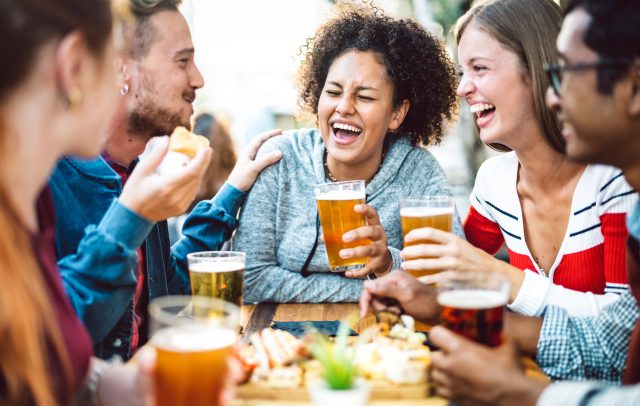This website uses cookies so that we can provide you with the best user experience possible. Cookie information is stored in your browser and performs functions such as recognising you when you return to our website and helping our team to understand which sections of the website you find most interesting and useful.
‘Dutch courage’ wins over ‘beer goggles’, research claims
New research suggests that alcohol may give you the courage to approach someone at the bar rather than so-called ‘beer goggles’ impacting attractiveness.

The findings come from a study produced by Molly Bowdring of the Stanford Prevention Research Centre, Stanford University, in the USA (affiliated with University of Pittsburgh at the time of this study), and her dissertation adviser, Michael Sayette.
Published in the Journal of Studies on Alcohol and Drugs, the research involved 18 pairs of male friends in their 20s, and suggested alcohol would make you more likely to approach someone they already found attractive – but it does not alter the appearance of other people.
It follows the rumour that being intoxicated with alcohol would make other people seem more attractive, but the research from the past had people rate others’ attractiveness while sober and while intoxicated, based on photos.
The study group of men were brought to the laboratory to rate the attractiveness of people from photos and videos and were told they may be given the opportunity to interact with them in the future. After providing ratings, the men then picked out who they would like to interact with.
Pairs of men visited the laboratory on two separate occasions with both receiving alcohol on one visit and the other time receiving a non-alcoholic drink. Friends appeared together to provide a similar environment to a traditional social outing for drinking.
According to the researchers, there was no evidence of ‘beer goggles’ but it could impact how those they interact with those they do find attractive. During drinking, they were 1.71 times more likely to select one of their top-four candidates for attractiveness to potentially meet than when sober – suggesting confidence is enhanced by alcohol.
Professor Sayette from the University of Pittsburgh said: “The well-known beer goggles effect of alcohol does sometimes appear in the literature, but not as consistently as one might expect.”
Bowdring said: “People who drink alcohol may benefit by recognising that valued social motivations and intentions change when drinking in ways that may be appealing in the short term, but possibly harmful in the long term.”
Related news
Women 'more likely' to choose wine with 'feminine' labels

